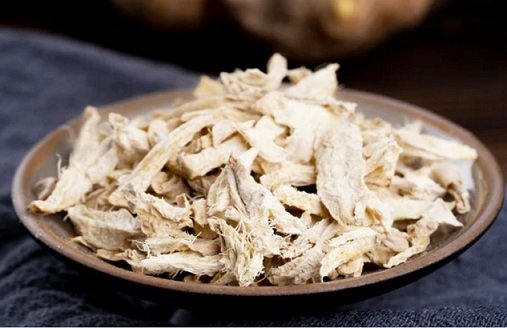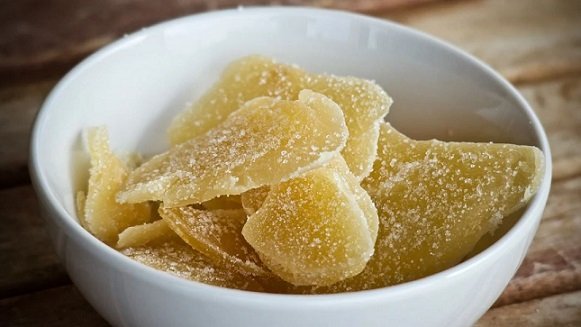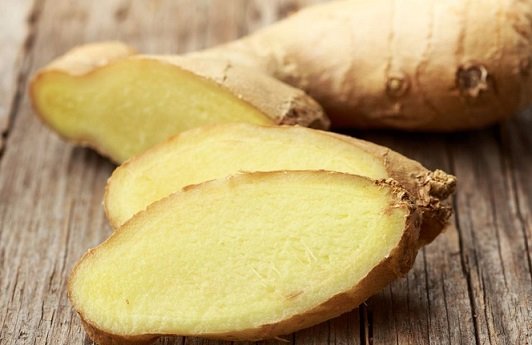It goes without saying that ginger, like any other vegetable, has a limited lifespan after which it begins to deteriorate. So if you just harvested a fresh batch of ginger then read on how to store it to last longer.
There are some effective storing methods like refrigeration, freezing, etc that can help peeled or unpeeled ginger last longer.
Why do I need to Store Ginger?
You probably may find yourself asking this question.
Ginger will not last longer than a week with its peels and a few days if its peel is removed. For extending its life, you must seek a feasible way to stop natural decay and prevent microbial growth.
If no effective storage method is used, all your ginger would begin to rot after some time.
Wouldn’t that be a waste of money if you have bought it from the store? And that could be even more devastating for a gardener seeing his homegrown ginger getting rotten and all his time, energy, and resources getting wasted!
Storing ginger is essential for its usability and taste.
As ginger progresses in its life, its chemical stability decreases, and chemicals begin to break it down. This leads to rotting and you can see the signs of ginger going bad.
Peeled vs Unpeeled Ginger
The difference between peeled and unpeeled ginger is the presence or absence of dark/light brown tough skin. This peel also impacts its ability to retain its properties (storing capability) and remain stable.
Unpeeled ginger retains its properties much better and can be stored longer compared to peeled ginger. So you should think twice before peeling if you want to keep ginger for long.
The peel of the ginger is thick and somewhat dry offering protection.
Storage Methods for Peeled Ginger
As mentioned above, peeled ginger is prone to rotting soon. They don’t have the protection of the peel and hence should not be stored at room temperature.
Below are a few recommended storage methods that can act as a means of keeping your peeled ginger edible for a longer time without sacrificing its flavor.
1) Drying

Dehydrating or drying makes ginger less prone to spoilage since a major spoiling agent (water) is absent. But, it could still be at risk of fungal growth eventually after a long time. Dry ginger can be made into a powder that remains edible for more than a year!
Ginger powder still has a punchy taste and is easy to use in food and baking, as long as you master the measurements!
2) Refrigeration
Unpeeled ginger can last a few days (less than a week) if left out in the open. Ginger refrigeration is usually an ideal storage method if you use ginger on a regular basis.
You just need to ensure that moisture does not accumulate around it.
3) Freezing
Freezing is a convenient way to store ginger and free up space in the fridge. Peeled ginger keeps well in the freezer and can be used as per requirement.
Take out a few pieces and let them thaw before chopping. Frozen ginger can be grated immediately and is easier to grate in this state.
Freezing ginger is currently the best way to stop the spoilage of ginger without changing its chemical or physical properties that much. Frozen peeled ginger can last for months at a time, especially when in the form of whole ginger rhizomes or pieces.
Peel-free ginger can be thinly sliced or chopped into cubes or chunks for storage. Ginger like this freezes well and is more suitable for its main purpose; flavoring food. They are pre-cut, saving you time on cleaning and preparation.
4) Pickling
Spirits such as sherry, vodka, and vinegar have long been used to suppress microbes and store ginger. You do need to make sure the ginger is fully submerged to stay preserved or else there is a chance for spoilage.
In spirits, your peeled ginger pieces or slices can survive a few weeks without showing any signs of ‘going bad’. When you start to notice the liquid spirit is changing color, it is time to say goodbye.
Storing in vinegar is actually called pickling and can give your ginger a unique taste, making it a great add-on to any menu.
5) Candied Ginger

Have quite a bit of excess peeled ginger and you also happen to be a huge ginger fan.
This calls for a preserved ginger treat and Candied ginger is the most ideal option. Boiling ginger slices in a pot of water and sugar will lead to a sweet and tangy delicacy.
With candied ginger, you can use your extra ginger, enjoy ginger benefits, or have some health-conscious sweet offering after meals.
6) Ginger Powder
People who are unable to access fresh ginger Or people who face constant ginger spoilage can turn to ginger powder. Ginger powder is easy to store, takes up less space, is concentrated, and lasts years!
Storing Unpeeled Ginger
Unpeeled ginger still has its dark brown tough peel around the edible ginger flesh. Not surprising that this ginger actually stores well and outlasts ginger without its peel! The outer peel may dehydrate, but in doing so it protects the inner contents of the rhizome.
Here are some ideas on how to store unpeeled ginger even longer.
a. Planting Unpeeled Ginger
Need a way to store unpeeled ginger? Well, you can store your unpeeled ginger rhizomes and also get a steady supply of fresh ones.
Plant your ginger in a pot of soil. As long as you remember to water the ginger, it will sprout and grow.
Whenever you need ginger, uproot a ginger plant and take a piece of the rhizome. These actions will not have adverse effects on the ginger plant and it will continue to grow. This way, you can use and replicate your ginger simultaneously.
How Much Ginger Should I Take Daily? What are Benefits & Side Effects?
b. Freezing
This might sound odd to some people but it is true that you can store ginger in the freezer with the peel still on.
One obstacle to overcome is that sometimes food items are subject to freezer burn when stored in the freezer.
Freezer burn occurs when the food item is not in air-tight packaging and the food and air come in contact with each other.
The result is a grey leather-like area that does not look appetizing at all! To avoid freezer burn on your ginger, store unpeeled ginger in an air-tight container or reusable zip-lock plastic bag before freezing.
c. Refrigerator
Have just a few unpeeled rhizomes that you will be using soon? You can keep them in the fridge, with certain conditions that must be met.
If you plan to store ginger in the fridge unpeeled, you must wrap them in a paper towel, or else excessive condensation will make the rhizomes wet and soggy. Eventually, this will lead to rotting.
Secondly, ginger kept like this must be used fast as it will not store as long as frozen ginger rhizomes. Your ginger can last a month, but remember the quality will decrease as time goes by. Therefore, try to use it before its flavoring potential is at risk.
Note: Storing ginger (any form) using a vacuum sealer is good as it keeps out any air, giving your ginger the chance to last longer!
Keeping Times: How Long Does Ginger Last
People who want to store ginger for their convenience and its vital use would be interested in its keeping time or ‘expiry date’.
- Ginger keeps well in the refrigerator for a month or a few months (depending on its form and if the peel is present or absent)
- Frozen ginger lasts months if you do not thaw it repeatedly!
- Ginger powders are by far the best storage method. They can last a year or even years with the right procedure.
FAQs
Yes, ginger can be stored at room temperature, as long as the peel is still on. The peel acts as a protective barrier between the root flesh and spoiling agents present in the air.
Yes, ginger will eventually go bad in the refrigerator. With passing time, chemical conditions will change and moisture will increase. This favors the growth of mold and fungi which decomposes the ginger.


